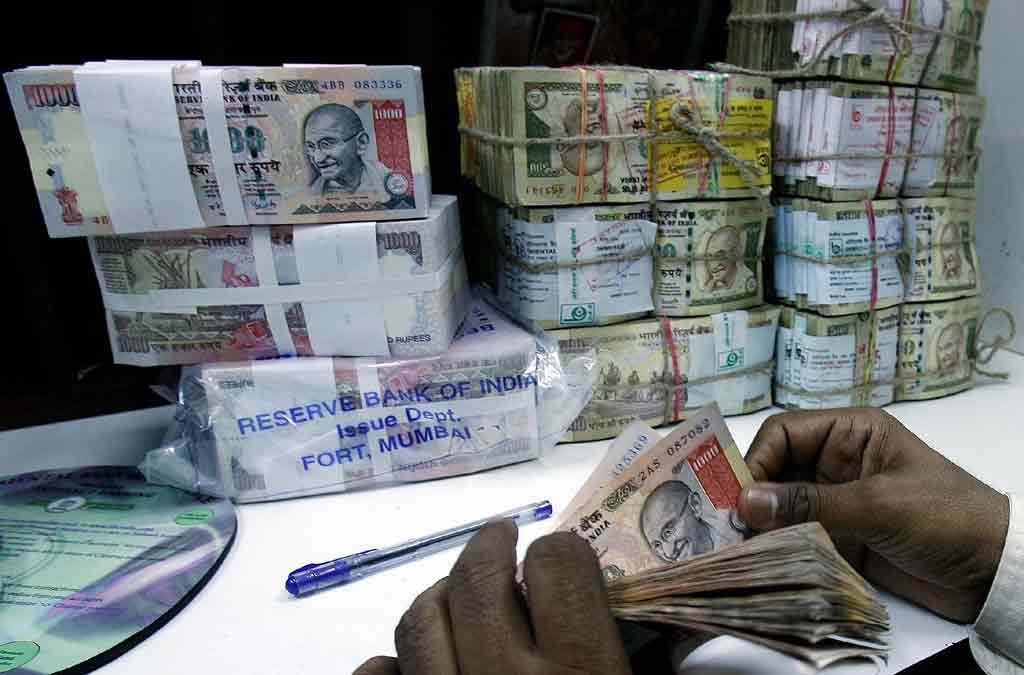 MUMBAI: India's rupee plunged along with equities on Tuesday after the country's central bank chief quit following a dispute with the government that analysts say raises fears about its independence.
MUMBAI: India's rupee plunged along with equities on Tuesday after the country's central bank chief quit following a dispute with the government that analysts say raises fears about its independence.
Urjit Patel stood down as governor of the Reserve Bank of India (RBI) on Monday evening following months of tensions with Prime Minister Narendra Modi's government over interference in policy.
Patel cited "personal reasons" for his decision but experts and media reports have said he was annoyed by New Delhi's repeated efforts to impose its influence.
The rupee sank more than one percent to 72.19 to the dollar, with speculation swirling that an RBI intervention kept it from falling further, while the benchmark Sensex in Mumbai slid 1.47 percent shortly after the opening bell.
Analysts say that Patel's departure, extremely rare for a central banker before the end of his term, is evidence that the RBI's autonomy is under threat.
"This is a clear signal of an eminent institution being attacked and its independence being chipped away one step at a time by the government," independent economist Ashutosh Datar told AFP.
"It is obvious Patel resigned because he faced a lot of pressure on issues such as bad loans, shadow banking, and the central bank's independence.
"This will reflect badly on the government and probably affect the central bank's sovereignty in the long run," he added.
The shock resignation comes after Patel's deputy, Viral Acharya, warned the government in a strongly worded speech in October that undermining the bank's independence could be "potentially catastrophic".
Indian business dailies reported in October and November that the government had invoked never-before-used powers to send at least three letters to Patel seeking to direct policy.
Newspapers suggested Patel was close to quitting over the issue at the time, but the tensions were believed to have been diffused following clear-the-air talks three weeks ago.
- Election looms -
The government is believed to be unhappy with the RBI over a number of issues including interest rates, how to deploy reserves and what to do about India's sliding rupee.
The rupee has been one of Asia's worst-performing currencies this year, although it has bounced back in the past fortnight, while economic growth slowed to under eight percent in the July-September quarter.
It is understood the government is pressuring the bank to enact policies to help spur growth ahead of next year's elections, when Modi will run for a second term.
"With the RBI Governor's resignation one more independent institution has fallen," Rahul Gandhi, Modi's rival from the Congress Party in polls expected by the end of May, said in a tweet.
The government would like the RBI to lower interest rates and free up more of its cash reserves to invest in Asia's third-largest economy, analysts say.
It has also been pushing the RBI to ease lending norms following the near collapse of IL&FS, a so-called "shadow bank" responsible for huge investment in infrastructure projects.
The finance ministry wants mainstream commercial banks to be allowed to lend more but the RBI is reluctant, instead focusing on tackling a massive bad loans crisis.
Patel took over as RBI chief in August 2016 and his term was due to end in September next year. Governors are traditionally offered a second term.
Patel succeeded the charismatic and outspoken Raghuram Rajan who himself clashed with the Bharatiya Janata Party-led government.
Patel was initially seen as a more pliant figure, seeming to back Modi's shock decision in November 2016 to scrap 86 percent of the country's currency notes.


























Comments
Comments are closed.